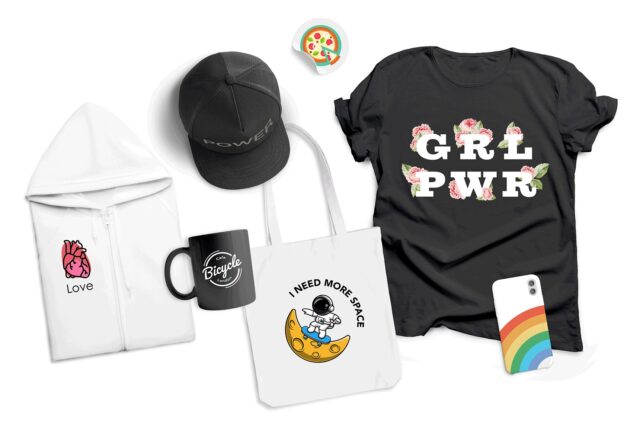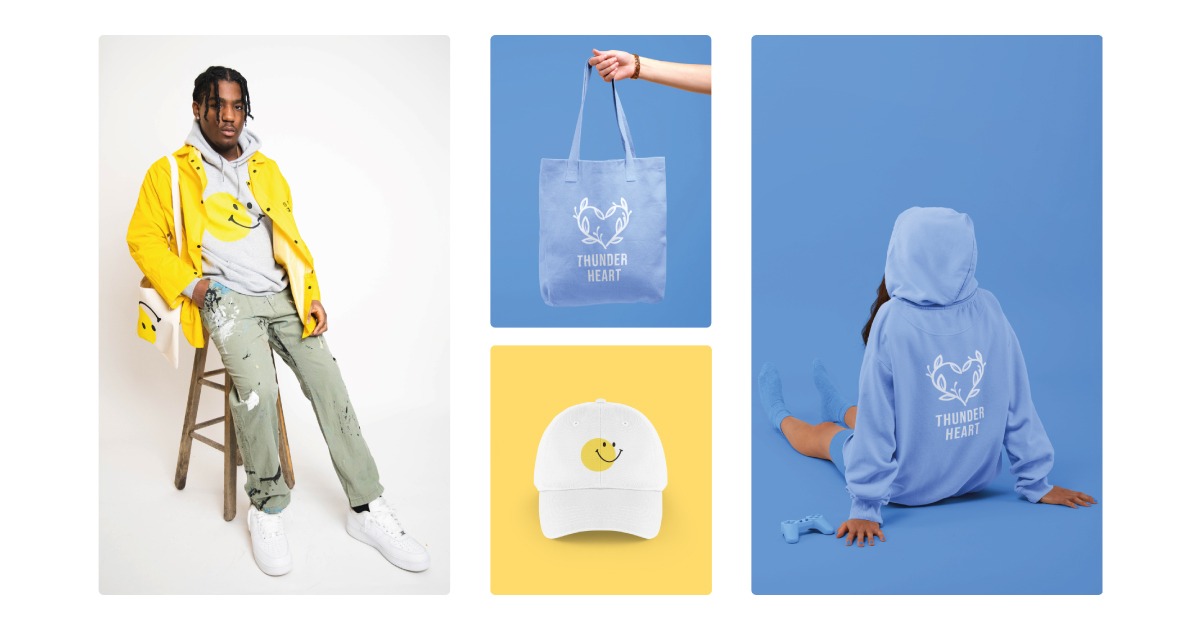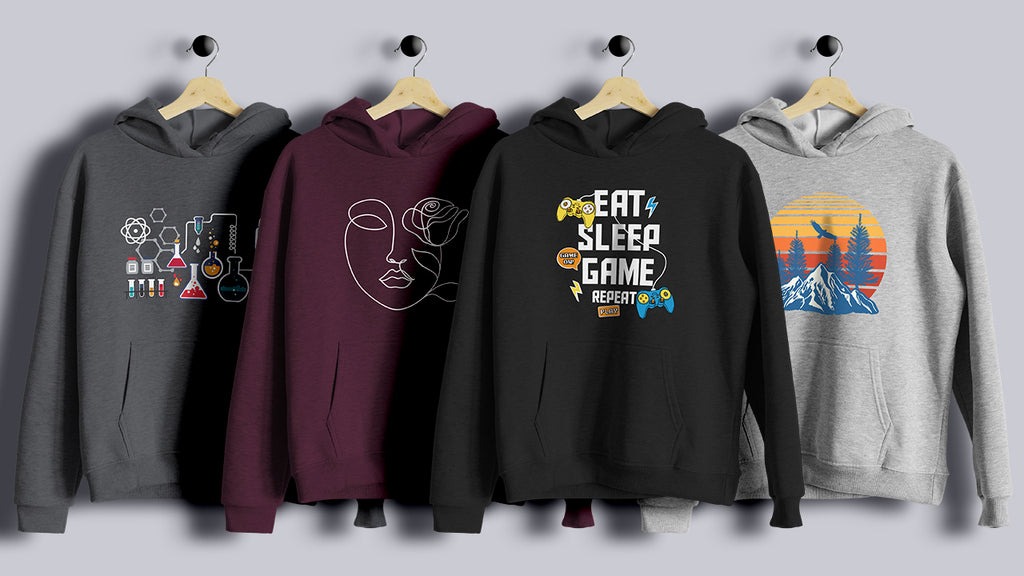
Running an online store today means more than just having the right product. Customers want items that feel personal, creative, and relevant to their lifestyle.
That’s where custom merchandise comes in.
These products carry a sense of uniqueness that appeals to buyers, whether they are shopping for themselves or for a gift. In a crowded marketplace, originality paired with practical use is what truly drives sales.
The good news is that sellers don’t need massive budgets or advanced equipment to launch custom products.
With the right selection and smart positioning, even small businesses can compete and thrive.
Below, we’ll walk through custom merchandise ideas that have proven demand, share why they resonate with shoppers, and provide tips on how to market them effectively.
Why Personalized Products Sell So Well

Shoppers are not just buying an item; they’re buying an experience. A water bottle becomes more valuable if it carries someone’s name, while a tote bag feels more stylish when it reflects their personality.
This emotional connection is why customized items stand out in e-commerce.
Other key reasons for their success include:
- Sense of individuality: Buyers love products that reflect who they are.
- Gift appeal: Personalized merchandise makes gift-giving easier and more thoughtful.
- Higher perceived value: A simple product feels premium when it’s custom made.
- Repeat potential: Customers who love their first purchase often come back for more.
These factors combine to make custom merchandise one of the most reliable categories for online sellers.
Soft Goods with Emotional Appeal
One of the most successful niches in custom merchandise revolves around comfort and creativity. Items like pillows, blankets, and especially plush toys often strike an emotional chord.
Custom plushies are winning over online shoppers because they tap into both sentiment and creativity. People design them as mascots, personal gifts, or collectible items that reflect a unique identity.
What makes them so appealing is the way they blend nostalgia with modern personalization. Far beyond simple toys, they often become cherished keepsakes or display pieces that hold lasting value.
If you’re running an online shop, consider how plush or other soft goods can create stronger emotional bonds with your audience.
Custom Apparel That Stays Relevant

Apparel continues to dominate online sales, and the demand for custom clothing shows no sign of slowing down.
Shirts, hoodies, and hats with personalized designs remain top sellers because they offer wearers a chance to express themselves publicly.
What works well here is variety. Limited edition runs, seasonal designs, or collaborative collections can build hype.
Online sellers should also consider offering different fabric options and inclusive sizing to reach broader audiences.
By focusing on quality and creativity, custom apparel becomes more than a piece of clothing – it turns into a statement.
Everyday Items That Become Personal
Custom products don’t always have to be big-ticket items. Everyday accessories often perform surprisingly well because they are affordable, practical, and easy to personalize.
Some strong options include:
- Phone cases: With nearly everyone carrying a smartphone, custom cases remain evergreen.
- Tote bags: Reusable and stylish, they appeal to both eco-conscious and fashion-minded buyers.
- Water bottles and mugs: Daily-use products that gain sentimental value when personalized.
- Stationery: Notebooks, sticky notes, and planners can carry unique branding or personal touches.
These products work especially well for impulse purchases. Since the cost is low, shoppers are more likely to add them to their carts without much hesitation.
Limited Edition Collectibles
Scarcity is a powerful marketing tool. Custom collectibles such as enamel pins, acrylic standees, or artist-designed prints attract both casual fans and serious collectors. The trick is to keep designs fresh and to create a sense of exclusivity.
For example, sellers might release a new collection each month or tie a design to a seasonal theme. This not only builds anticipation but also encourages repeat purchases from loyal customers. Online communities thrive on this kind of engagement, often spreading the word themselves.
Custom Home and Lifestyle Products

Home décor and lifestyle goods are another segment gaining traction in online sales. Customers enjoy items that make their space feel more personal and aligned with their taste. Think custom wall art, engraved cutting boards, or personalized candles.
The value here comes from blending function with style. These items aren’t just decorative; they are useful, which increases their appeal.
A cutting board engraved with a family name, for instance, doubles as both a tool and a centerpiece in the kitchen.
Sellers can market these as perfect housewarming or holiday gifts, adding more opportunities for year-round sales.
Building a Strategy Around Custom Merchandise
Selling custom merchandise isn’t only about choosing the right product. To succeed, sellers need to approach it with a smart strategy. Here are a few points worth considering:
- Define your niche: Are you targeting gamers, pet owners, students, or a corporate crowd? Your audience determines your product line.
- Leverage visuals: High-quality product images and lifestyle photography help customers imagine the item in their own life.
- Offer easy customization: A smooth online customization process builds trust and reduces abandoned carts.
- Market the story: Highlight the uniqueness of your products and the meaning behind them rather than just focusing on price.
- Encourage reviews: Social proof is powerful. Customers who share photos of their custom items often inspire new buyers.
These elements combined help turn custom products into consistent revenue drivers.
Wrapping It Up
The market for custom merchandise is strong because it blends practicality with personal meaning. Products like plush toys, apparel, accessories, collectibles, and home décor all hold proven potential for online sellers. By focusing on emotional appeal, functionality, and creative marketing, businesses can carve out their space in the digital marketplace.
For sellers just getting started, the most important step is to test products in small batches and listen to customer feedback. Those insights often reveal what resonates most with your audience and guide the next stage of growth.
Custom merchandise isn’t just about selling things — it’s about offering experiences and memories that customers want to carry with them. That’s why the right idea, paired with thoughtful presentation, can quickly turn into a best-selling product online.






